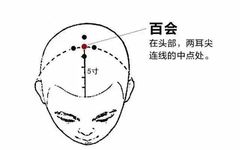Identifying acupuncture points is a fundamental skill for every practitioner of Traditional Chinese Medicine (TCM). However, the human body contains numerous and complex acupuncture points, making it challenging to locate them accurately. This article provides an overview of the effects and locations of commonly used acupuncture points to assist you in accurately finding them!
1. Common Acupuncture Points on the Head and Face
1. Baihui (Hundred Meetings)
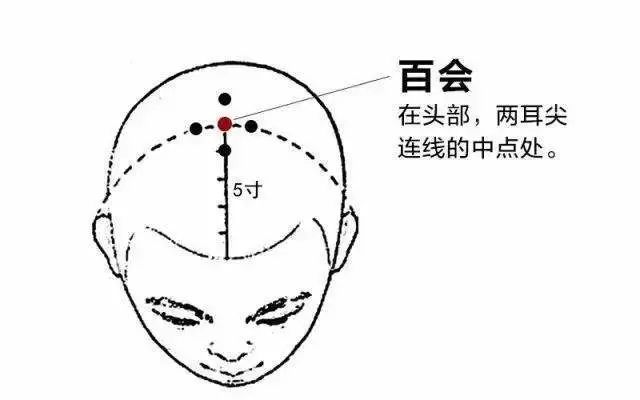
[Location]
At the intersection of the midline of the head and the line connecting the tips of both ears.
[Indications]
Headache, dizziness, hypertension, prolapse of the rectum, etc.
2. Taiyang (Sun)
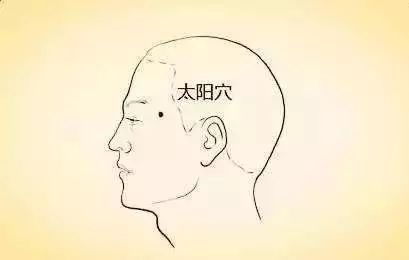
[Location]
Between the outer canthus of the eye and the tail of the eyebrow, about 1 inch posterior in a depression.
[Indications]
Headache, migraine, eye diseases, facial paralysis.
3. Yangbai (Yang White)
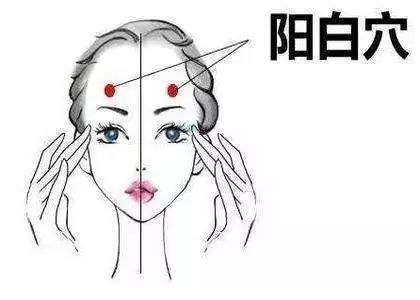
[Location]
On the forehead, directly above the pupil, 1 inch above the eyebrow.
[Indications]
Facial paralysis, headache, eye diseases.
4. Cuanzhu (Gathering Bamboo)
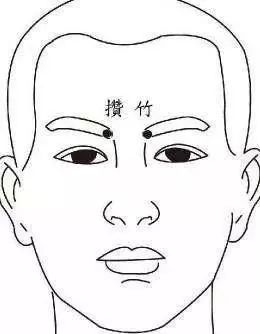
[Location]
At the inner end of the eyebrow.
[Indications]
Headache, eye diseases, pain in the brow ridge, facial paralysis.
5. Jingming (Eye Bright)
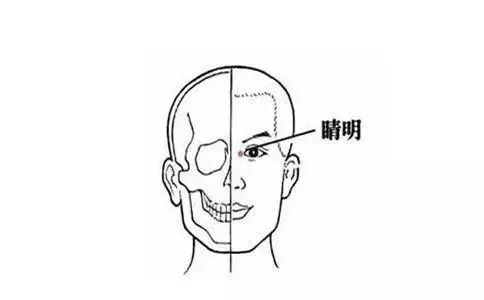
[Location]
With eyes closed, 0.1 inch above the inner canthus of the eye.
[Indications]
Various ophthalmic conditions, facial paralysis.
6. Fengchi (Wind Pool)
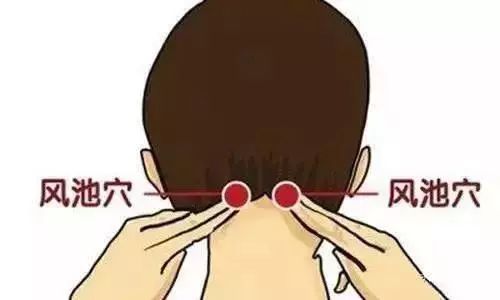
[Location]
In the depression between the sternocleidomastoid muscle and the trapezius muscle, level with the mastoid process.
[Indications]
Common cold, headache, dizziness, stiff neck, eye diseases, hypertension.
7. Fengfu (Wind Palace)
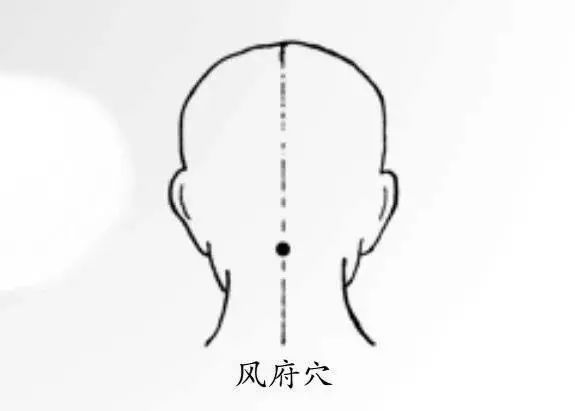
[Location]
1 inch above the posterior hairline.
[Indications]
Dizziness, neck pain, aphasia after stroke, hysteria, sore throat.
8. Yingxiang (Welcome Fragrance)
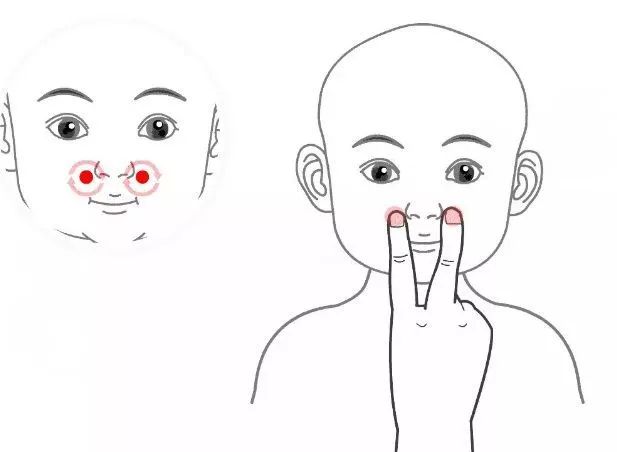
[Location]
0.5 inch beside the wing of the nose.
[Indications]
Rhinitis, nasal congestion, facial asymmetry.
9. Yintang (Hall of Impression)
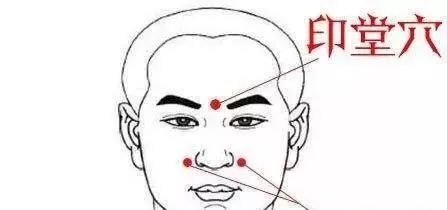
[Location]
At the midpoint of the line connecting the two eyebrows.
[Indications]
Headache, dizziness, nasal diseases, skin diseases, hypertension.
10. Renzhong (Human Center)
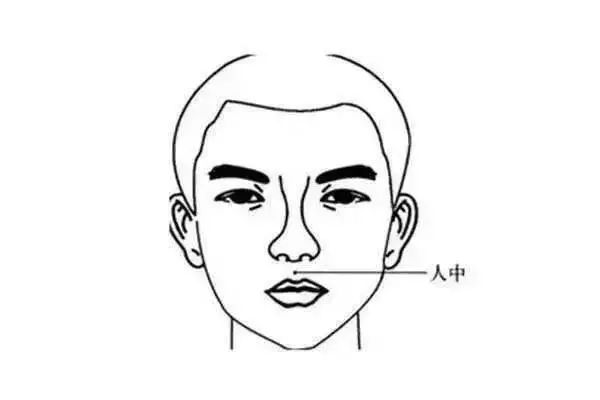
[Location]
At the junction of the upper third and lower two-thirds of the philtrum.
[Indications]
Coma, mania, facial asymmetry, lumbar pain.
11. Shenting (Spirit Court)
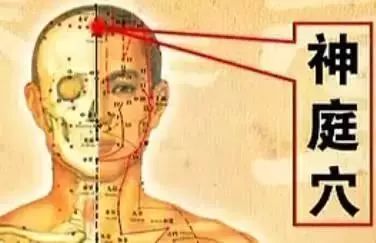
[Location]
0.5 inch directly above the anterior hairline.
[Indications]
Headache, dizziness, eye diseases, speech disorders, mania.
12. Touwei (Head Corner)
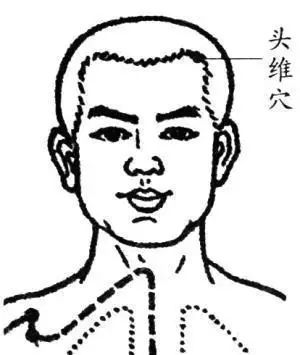
[Location]
0.5 inch above the forehead hairline.
[Indications]
Headache, dizziness, eye diseases.
Many people find the concepts of TCM meridians and acupuncture point health maintenance mysterious and out of reach. In fact, the methods of health maintenance through acupuncture points are quite simple, and many techniques can be performed independently, such as massage, moxibustion, and cupping.
2. Common Acupuncture Points on the Chest and Abdomen
13. Danzhong (Chest Center)
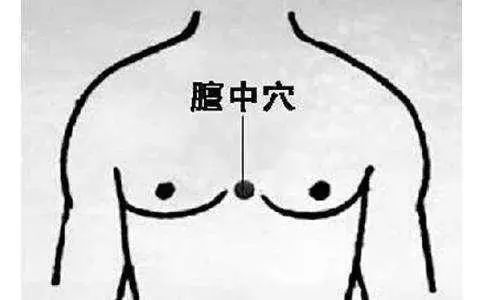
[Location]
Between the two breasts, on the midline of the sternum, at the level of the fourth intercostal space.
[Indications]
Bronchitis, asthma, chest pain, intercostal neuralgia, coronary heart disease.
14. Zhongwan (Middle Stomach)
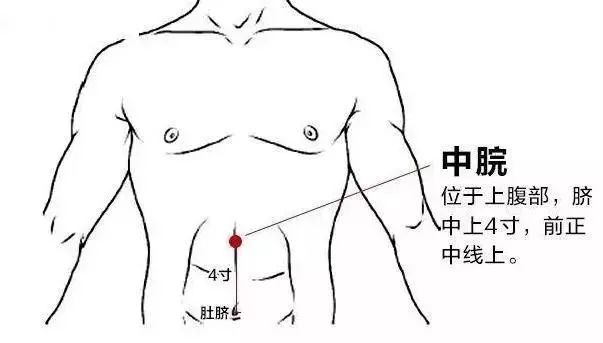
[Location]
On the abdomen, on the anterior midline, 4 inches above the navel.
[Indications]
Stomach pain, gastric ulcer, chronic gastritis, vomiting, hiccups, etc.
15. Tianshu (Heavenly Pivot)
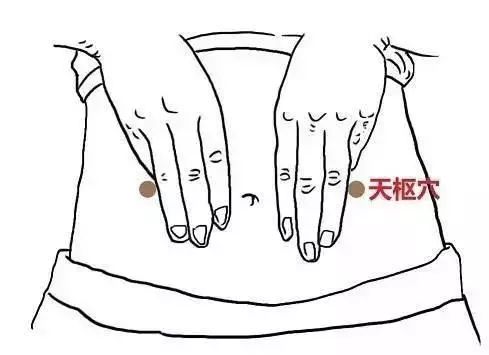
[Location]
On the abdomen, 2 inches beside the navel.
[Indications]
Acute and chronic gastritis, enteritis, dysentery, constipation, etc.
16. Qihai (Sea of Qi)
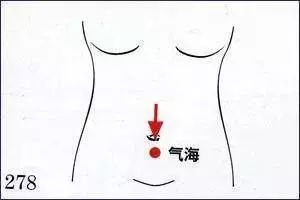
[Location]
On the abdomen, on the anterior midline, 1.5 inches below the navel.
[Indications]
Abdominal distension, abdominal pain, qi deficiency.
17. Guanyuan (Gate of Origin)
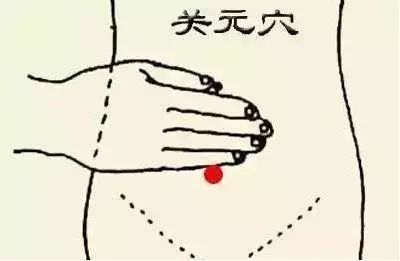
[Location]
On the abdomen, on the anterior midline, 3 inches below the navel.
[Indications]
Abdominal pain, abdominal diseases, urinary tract infections, menstrual irregularities, sexual dysfunction.
18. Daheng (Great Horizontal)
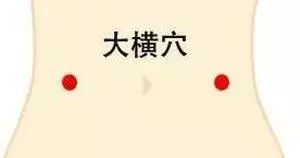
[Location]
4 inches beside the navel.
[Indications]
Diarrhea, constipation, abdominal pain.
The human meridian system is a vast pharmacy! Regularly massaging acupuncture points can utilize the body’s own medicinal resources, reducing reliance on external medications.
In fact, taking medicine is about utilizing the various properties of the medicine, through digestion in the stomach, detoxification in the liver and kidneys, and absorption in the intestines, to provide the organs with essential nutrients that are particularly lacking, achieving a balance of yin and yang in the body. If we can achieve such effects without relying on external intake, why not?
3. Common Acupuncture Points on the Upper Limbs
19. Quchi (Pool at the Bend)
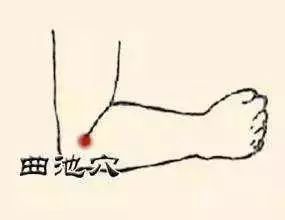
[Location]
With the elbow flexed at a right angle, at the midpoint of the line connecting the lateral epicondyle of the humerus and the elbow crease.
[Indications]
Pain in the upper limb joints, paralysis, numbness, hypertension, high fever, allergic diseases, skin diseases, etc.
20. Hegu (Union Valley)
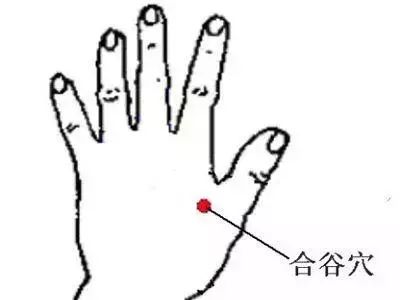
[Location]
At the midpoint of the first and second metacarpal bones.
[Indications]
Common cold, ENT diseases, facial nerve paralysis, neurological diseases, various pains, etc.
21. Chize (Cubit Marsh)
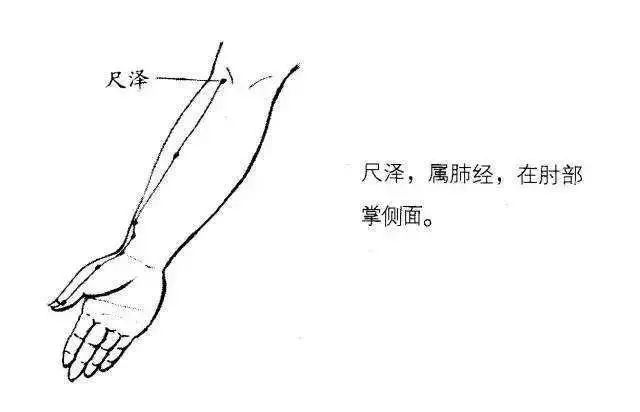
[Location]
In the cubital fossa, lateral to the tendon of the biceps brachii.
[Indications]
Cough, asthma, sore throat, arm pain, elbow joint pain, skin diseases, etc.
22. Neiguan (Inner Pass)
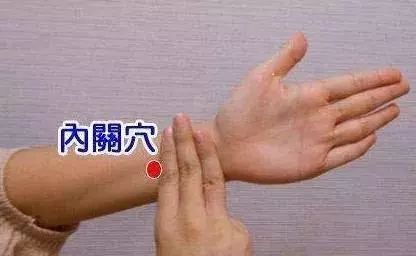
[Location]
With the arm extended and palm facing up, on the inner side of the forearm, 2 inches above the wrist crease, between the two tendons.
[Indications]
Cardiac diseases, neurological disorders, mental disturbances, stomach pain, vomiting, various pains, etc.
23. Laogong (Palace of Labor)
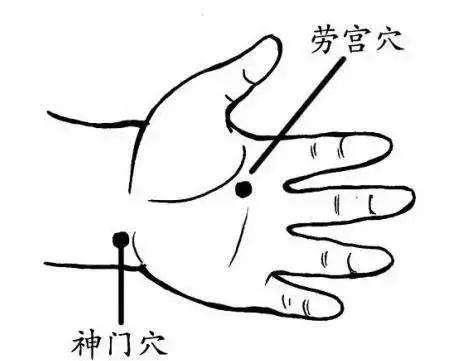
[Location]
At the center of the palm, where the tip of the middle finger touches when making a fist.
[Indications]
Coma from stroke, angina pectoris, hysteria, finger numbness, palm pain, etc.
24. Shenmen (Spirit Gate)
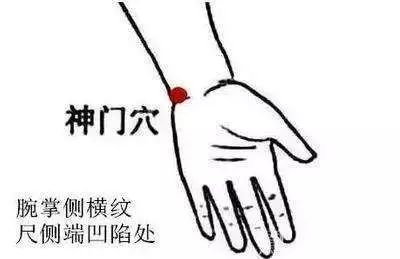
[Location]
On the ulnar side of the wrist crease, in the radial depression of the flexor carpi ulnaris tendon.
[Indications]
Heart pain, irritability, palpitations, forgetfulness, insomnia.
25. Waiguan (Outer Pass)
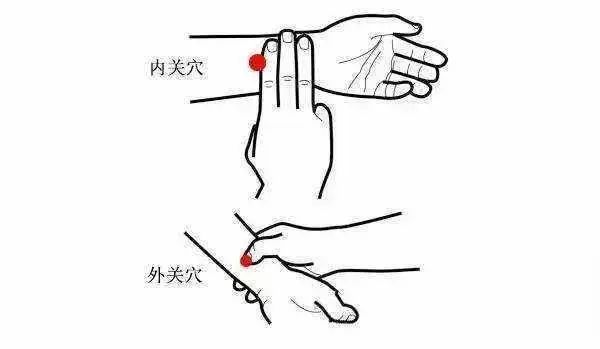
[Location]
2 inches above the wrist crease, between the radius and the styloid process of the radius.
[Indications]
Febrile diseases, headache, deafness, tinnitus, difficulty in flexing and extending the elbow.
26. Niuan (Twist Injury)
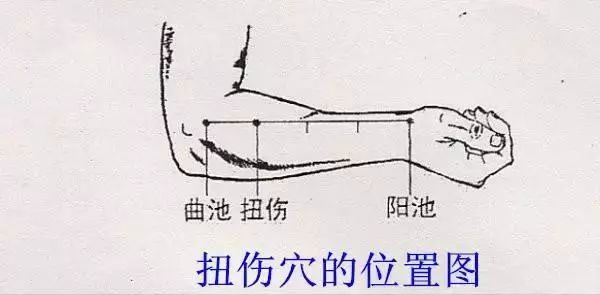
[Location]
With the elbow flexed, palm facing inward, at the junction of the upper 1/4 and lower 3/4 of the line connecting Quchi and the wrist crease.
[Indications]
Acute lumbar sprain.
Acupuncture point therapy has indeed shown high efficacy in treating diseases, which has been widely recognized. Recently, scientific methods have also been gradually used to analyze its effects.
4. Common Acupuncture Points on the Lower Limbs
27. Huantiao (Jumping Circle)
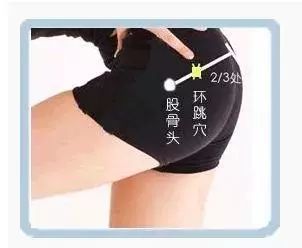
[Location]
At the junction of the outer 1/3 and inner 2/3 of the line connecting the highest point of the greater trochanter and the sacral hiatus.
[Indications]
Lumbar and leg pain, sciatica, lower limb paralysis, numbness, etc.
28. Xuehai (Blood Sea)
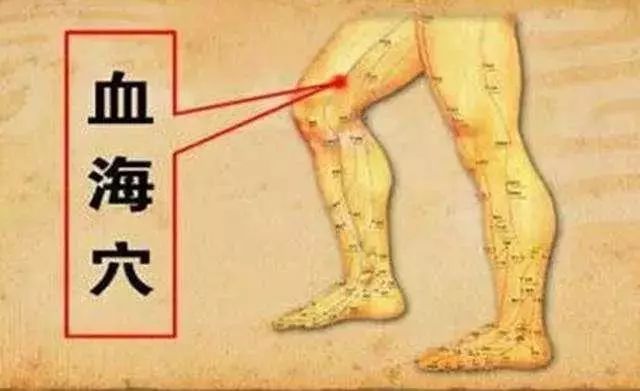
[Location]
2 inches above the inner side of the patella.
[Indications]
Menstrual irregularities, metrorrhagia, amenorrhea, inner thigh pain, etc.
29. Zusanli (Three Miles Below the Knee)
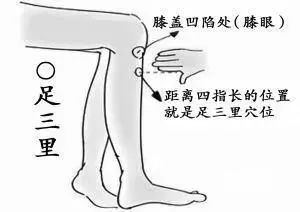
[Location]
3 inches below the outer knee, about one finger breadth lateral to the tibia.
[Indications]
Digestive disorders, nausea, vomiting, stomach pain, acute gastroenteritis, arthritis, lower limb paralysis, hemiplegia, etc.
30. Yanglingquan (Yang Mound Spring)
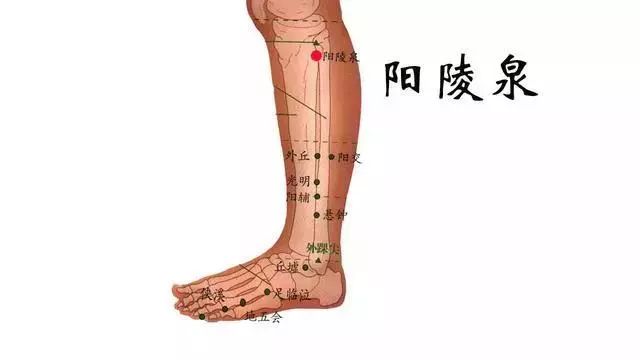
[Location]
With the knee flexed, in the depression just anterior to the head of the fibula.
[Indications]
Liver and gallbladder diseases, hypertension, hemiplegia, lower limb numbness and pain.
31. Weizhong (Middle of the Crook)
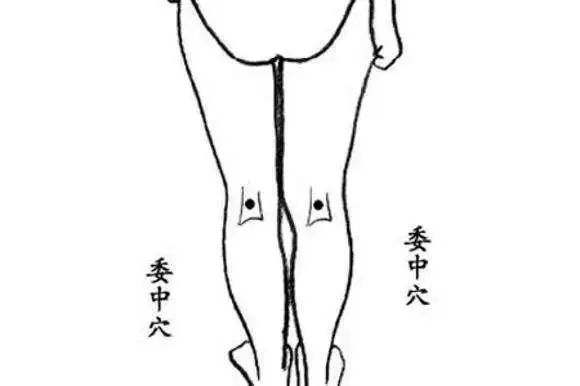
[Location]
At the midpoint of the popliteal crease.
[Indications]
Acute gastritis, vomiting, lumbar and leg pain, sciatica, arthritis, hemiplegia, low back pain, psoriasis, etc.
32. Chengshan (Supporting Mountain)
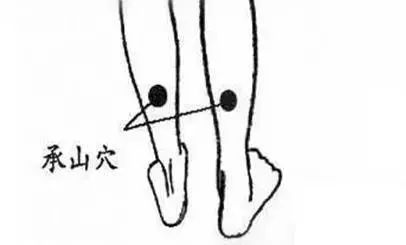
[Location]
At the apex of the depression between the two heads of the gastrocnemius muscle.
[Indications]
Lumbar pain, gastrocnemius muscle cramps, constipation, etc.
33. Sanyinjiao (Three Yin Intersection)
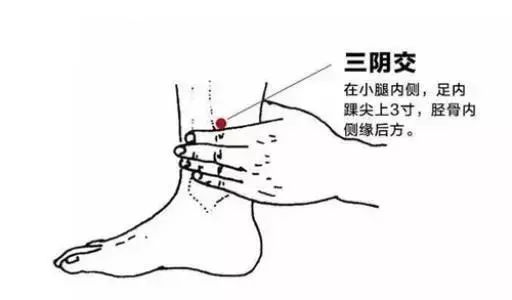
[Location]
3 inches directly above the highest point of the inner ankle, at the posterior border of the tibia.
[Indications]
Gynecological and reproductive system diseases, lower abdominal pain, diarrhea, eczema, neurodermatitis, urticaria, etc.
34. Xuanzhong (Suspended Bell)
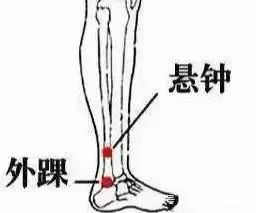
[Location]
3 inches above the highest point of the outer ankle, at the posterior border of the fibula.
[Indications]
Costal pain, abdominal distension, pain in the feet and calves, hemorrhoidal bleeding, etc.
35. Yongquan (Gushing Spring)
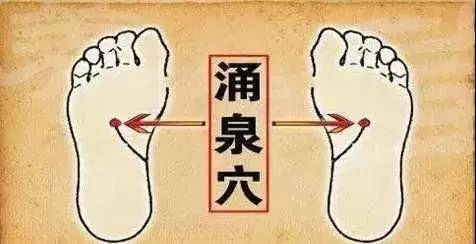
[Location]
On the sole of the foot, in the depression formed when the toes are flexed.
[Indications]
Headache, dizziness, fainting, sore throat, urinary difficulties, constipation, coma, etc.
Conclusion:
Acupuncture points are located along pathways of energy flow, known as “meridians.” The correct term for acupuncture points should be “jingxue” (meridian points).
If there are abnormalities in the internal organs, they will reflect on the meridians associated with those organs, further manifesting in the energy blockages at the corresponding acupuncture points.
Therefore, by stimulating these points, we can facilitate the smooth flow of energy and achieve therapeutic effects, which is the purpose of acupuncture therapy.
Disclaimer: Some articles on this site are reprints, and the copyright belongs to the original authors. Reprinting is for the purpose of conveying information and sharing. If there are errors in source attribution or infringement of your legal rights, please contact the author with proof of ownership, and we will promptly correct or delete it. Thank you.Note: The above content is for reference only and may not be suitable for all populations. It is recommended to adjust under the guidance of a physician.

